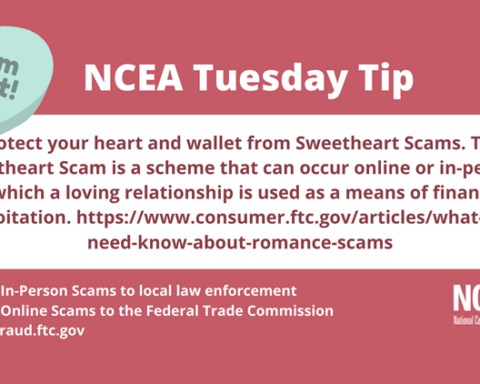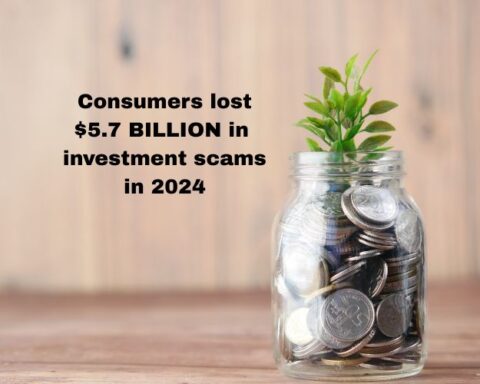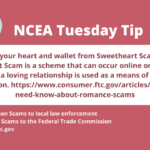As Valentine’s Day approaches, use your brain to protect your heart AND your money
Loneliness, isolation and the development of new technologies have contributed to the continued rise of romance scams. Many older adults are turning to the internet for dating, and companionship. According to reports made to the Federal Trade Commission, this type of scam hit an all time high in 2021.
The scammers are savvy. They play on your emotions, and find ways to connect with you. Are you a widow? He has recently lost his wife of many years. Are you struggling to raise a child? So is she. Most often the story involves a person from the United States currently living overseas, or from abroad but working in an isolated environment in the US. As the relationship develops, they remember details and ask about your day to day activities. This attention evolves into plans to meet in person, but sadly, there is always an obstacle. They have one more job to finish. There was a tragedy at the work site. There is a problem with the travel paperwork. And then comes the request for money.
This can happen to anyone, and it does. Analysis of the information shows that most victims are college educated, and some have graduate degrees. One in 10 will lose $100thousand or MORE. So, what can we do? On the computer, read the Federal Trade Commission website, FBI IC3 or go to the resources page at Stayconnectednh.org. See Below for some quick tips to protect your money.
Tips to avoid losing money to a romance scam
- Protect yourself and older loved ones by raising awareness. Although this can be an uncomfortable topic, make sure you, your family and your friends are familiar with romance scams. The more you know about these scams, the better prepared you are to prevent being a victim.
- Check in on older loved ones. Scammers are seeking to target those living alone or grieving the loss of a spouse as they are more vulnerable.
- Limit what you share online. Scammers can use details shared on social media and dating sites to better understand and target you.
- Do your research. Research the individual’s photo and profile using online searches to see if the image, name or other details have been used elsewhere.
- Go slowly and ask lots of questions. Don’t let the individual rush you to leave a dating service or social media site to communicate directly.
- Listen to your gut. If the individual seems too good to be true, talk to someone you trust.
- Don’t overshare personal information. Requests for inappropriate photos or financial information could later be used to extort you.
- Be suspicious if you haven’t met in person. If the individual promises to meet in person, but consistently comes up with an excuse for cancelling, be suspicious.
- Don’t send money. Never send money to anyone you have only communicated with online or by phone.
Think you’ve been scammed?
- Stop communicating with the individual immediately.
- Talk to someone you trust and describe what’s going on.
- Report the incident to local law enforcement.
- Submit a fraud complaint with the Federal Trade Commission.
Even if it’s too late to recoup losses, details may help others from becoming a victim.
Call 1-866-347-2423 to report suspicious criminal activity, including possible romance scams, 24 hours a day, 7 days a week, every day of the year.









